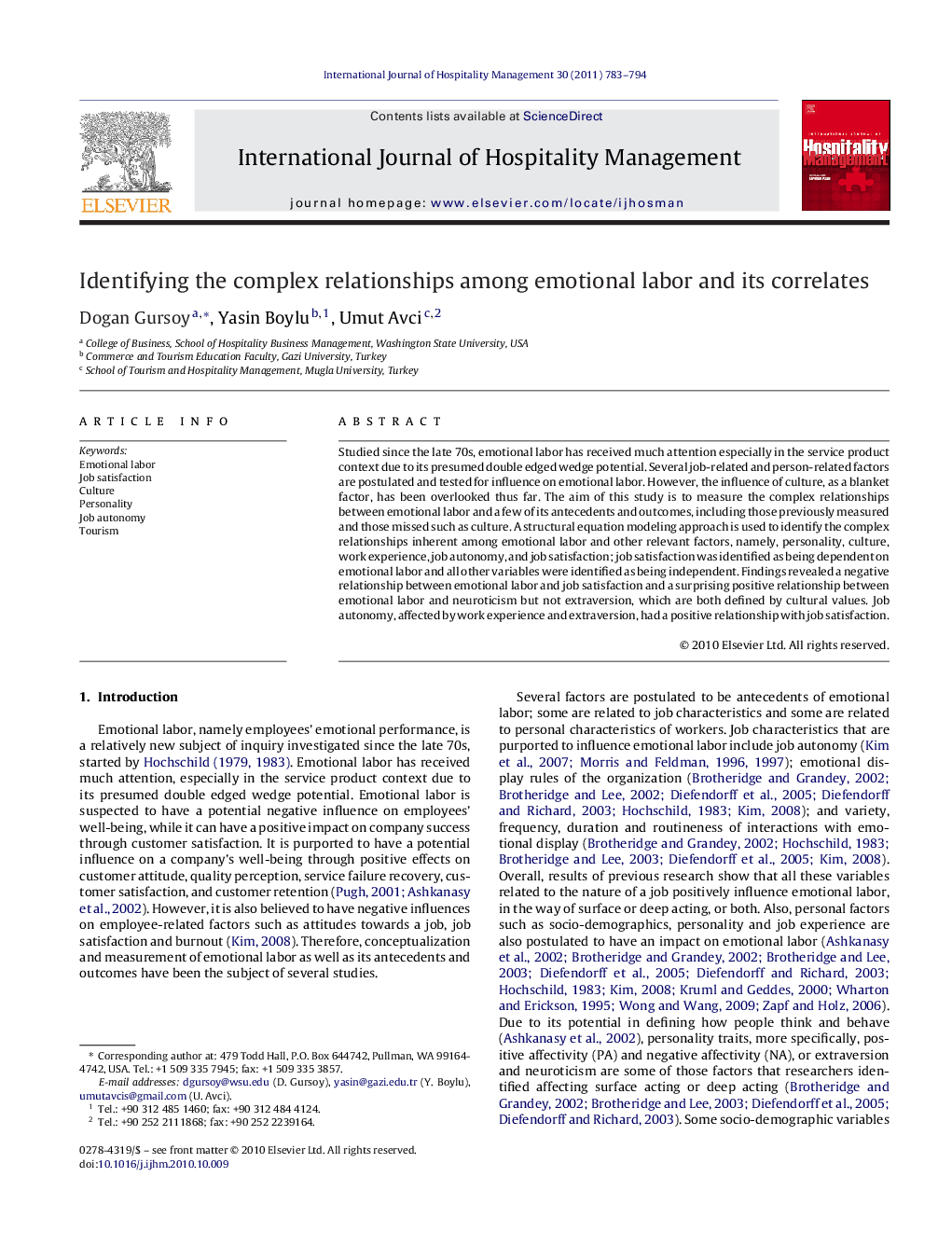| Article ID | Journal | Published Year | Pages | File Type |
|---|---|---|---|---|
| 1009655 | International Journal of Hospitality Management | 2011 | 12 Pages |
Studied since the late 70s, emotional labor has received much attention especially in the service product context due to its presumed double edged wedge potential. Several job-related and person-related factors are postulated and tested for influence on emotional labor. However, the influence of culture, as a blanket factor, has been overlooked thus far. The aim of this study is to measure the complex relationships between emotional labor and a few of its antecedents and outcomes, including those previously measured and those missed such as culture. A structural equation modeling approach is used to identify the complex relationships inherent among emotional labor and other relevant factors, namely, personality, culture, work experience, job autonomy, and job satisfaction; job satisfaction was identified as being dependent on emotional labor and all other variables were identified as being independent. Findings revealed a negative relationship between emotional labor and job satisfaction and a surprising positive relationship between emotional labor and neuroticism but not extraversion, which are both defined by cultural values. Job autonomy, affected by work experience and extraversion, had a positive relationship with job satisfaction.
Research highlights▶ This study examined antecedents of emotional labor and job satisfaction. ▶ Both job autonomy and emotional labor have significant impact on job satisfaction. ▶ Work experience and personality are two determinants of job autonomy perception. ▶ Personality traits have significant impact on emotional performance. ▶ Culture is a significant determinant of personality traits.
